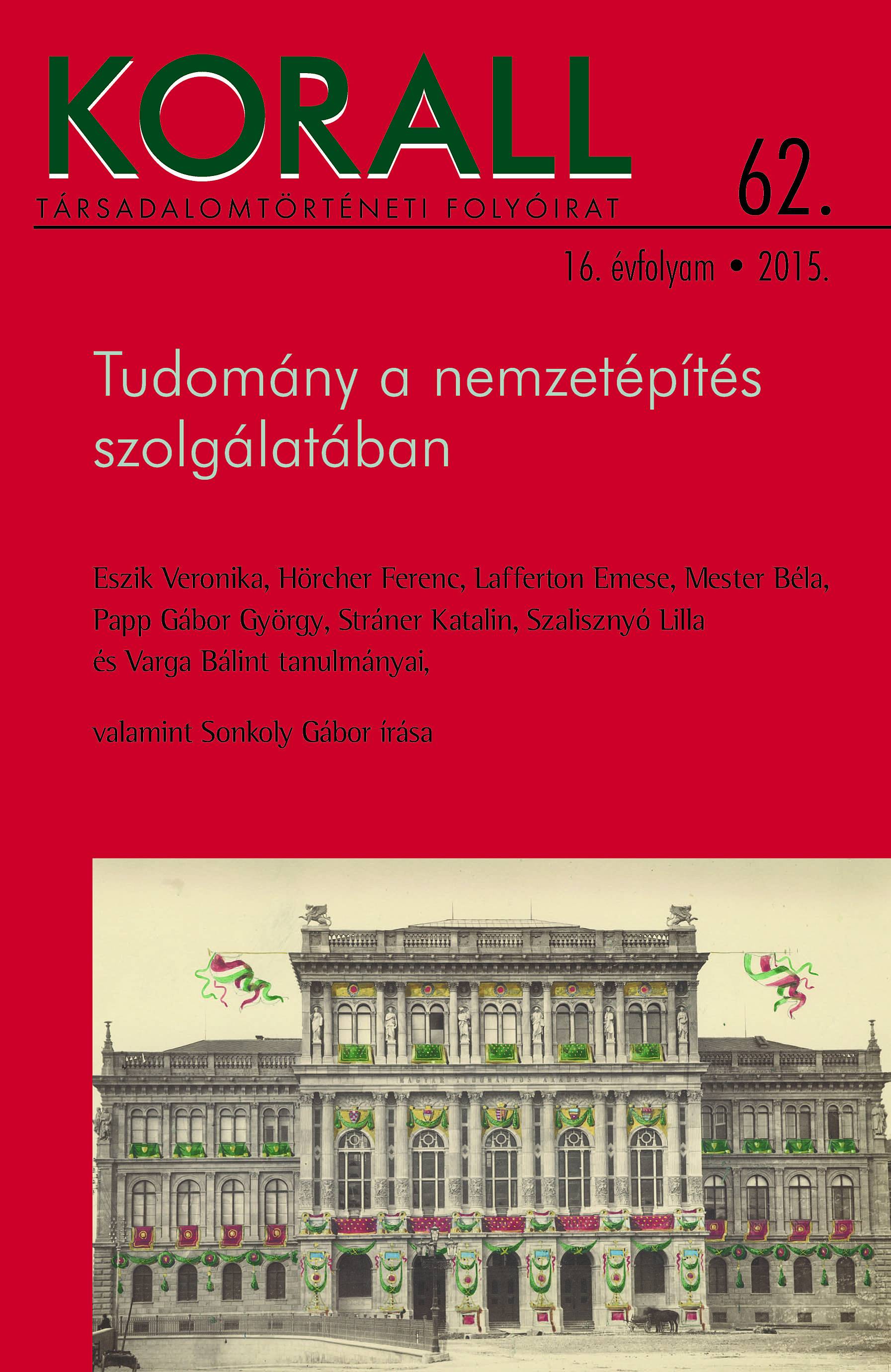„Soft power” a reformkorban?
“Soft Power” in the Nineteenth-Century Hungarian Reform Era?
The Cultural and Science Policy Aims of the Széchenyis
Author(s): Ferenc Horkay-HörcherSubject(s): History, Cultural history, Political history, 19th Century
Published by: KORALL Társadalomtörténeti Egyesület
Keywords: history; Hungary
Summary/Abstract: This paper aims at a reinterpretation of the early nineteenth-century efforts of the Hungarian counts Ferenc Széchényi and István Széchenyi, father and son, who both took a progressive part in cultural institution-building on a national level. While their efforts are usually understood as part of a larger project labelled as nation-building in Hungarian historiography, this essay connects them to an earlier ideal of the Enlightenment: aristocrats were deemed to be useful in raising the cultural standards of their community by sponsoring cultural activities and establishing cultural institutions. Due to their cosmopolitan perspective with a dominant Anglophile orientation, the counts were both inspired by European examples. Through their travels they got acquainted with the best practices in Europe, and became motivated to excel in the cultural sphere as well. Although this activity cannot be separated from the political turn during the autocratic reign of King Francis of Austria (1792–1835) which barred direct political opposition to Habsburg policies in the empire, the counts’ efforts were dedicated to the cultural renaissance of their country instead of the independence-oriented nationalist agenda articulated by the opposition circle of Lajos Kossuth in the 1840s. The paper reconstructs the founders’ intentions for the National Library and the National Museum (1802), twin institutions founded by the father Ferenc Széchényi; and the Hungarian Academy of Science, initiated by the son István Széchenyi in 1825. The two projects should be viewed as a continued effort of father and son, who both intended to use culture to support the civilising process of the country. Although arguably they together represent the first phase of what came to be called the Hungarian Reform Era, this institution-building programme was an expression of the counts’ self-conscious affirmation of classical antique-Christian virtues, the demonstration of their high-flying Enlightened ideals, and evidence for their realistic political sense. Especially through the latter, their cultural sponsoring activity was an attempt to negotiate court and country interests before the major clash between the autocratic ruler and the nationalist opposition from the 1840s onward led to the 1848 Revolution and War of Independence.
Journal: Korall - Társadalomtörténeti folyóirat
- Issue Year: 2015
- Issue No: 62
- Page Range: 5-28
- Page Count: 24
- Language: Hungarian

